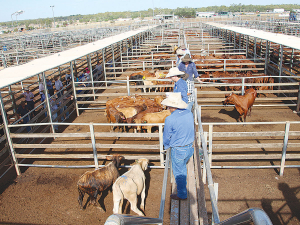A feed additive that reduces methane emissions in ruminants is poised for commercial launch in Australia - making it one of the first global markets to access the product.
Bovaer, developed by global science company Royal DSM, was evaluated under Australian feedlot conditions and found to reduce methane emissions by up to 90%.
In New Zealand, Fonterra is trialling Bovaer under a joint partnership with DSM.
Trials overseas have shown Bovaer reduces methane emissions by up to 30% in non-pasture raised cows.
Fonterra wants to know whether it would also work in New Zealand's pasture-based farming systems.
The additive is a synthetic chemical compound called 3-NOP, developed by DSM, which has been studied for many years in cows fed in feedlots. In Australia, Bovaer was recently evaluated as part of a Meat and Livestock Australia (MLA)-funded project on reducing methane emissions in Australian feedlot operations.
The trial, at different inclusion rates, was completed at the University of New England and is linked to the Australian red meat industry's CN 30 target to be carbon neutral by 2030.
A total of 20 Angus Steers were provided with different rates of Bovaer, ranging from 0.5g up to 1.25g a day over 112 days in a typical Australian feedlot finisher ration.
At the lowest rate, a methane reduction of 60% was observed, and at the highest inclusion rate, methane emissions reduced by 90%.
MLA says steers in the study had average daily gain and feed conversion ratios in line with industry expectations, with Bovaer treatment steers performing as 'good or better' than control steers in these performance parameters.
Professor Roger Hegarty - from the University of New England's School of Environmental and Rural Science - says he had seen research about Bovaer from other countries and was curious how the product would perform under Australian conditions.
"We're excited about the strong results, and we'll continue to research how to bring this product to more extensive operations," he says.
Mark van Niewland, programme director at DSM, says it's looking forward to bringing Bovaer to market in Australia in the near term.
"These exciting results are an important building block in that journey," says van Nieuwland.
Key Points
- When the feed additive Bovaer was added at a rate of 50-125mg/kg DM to Australian barley-based finishing diets containing Monensin and 7% fat (DM-basis), methane production and yield was reduced by up to 90%.
- Average daily gain and feed conversion ratios for steers were in line with industry expectations.
- Bovaer (3-NOP) is safe and effective at reducing methane emissions in feedlot cattle and could potentially help the Australian industry move towards carbon neutrality.



















